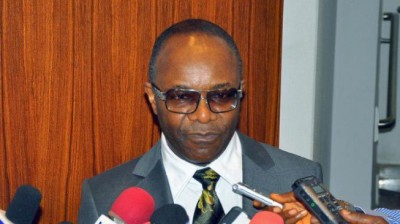
“You can’t control the fact that people will annoy you, what you can control is your reaction” —Buddha
These are trying times for Nigeria and Nigerians. The times are even more trying for the government of President Muhammadu Buhari. Juxtaposed against the swagger that characterised the boisterous presidential campaign of the President’s All Progressives Congress party (APC), many will be wondering at the turn of events. The swagger is gone. All is now sober. For once, the arrogant posturing of some of his close allies has started to give way to sombre reality. If the contrary had been the case, one would have lost hope in the Nigeria project. As of today, his government is missing out miserably on some of the most fundamental metrics of his campaign notably, the price of fuel and the value of the naira.
There is a consolation though. The fact is that these performance deficits do not necessarily stem from palpable inaction by the government. Falling oil prices, poor revenues, sabotage of oil installations and renewed insurgency in various parts of the country have contrived to pressure the government far beyond what had been anticipated.
Expectedly, Nigerians are angry, very angry indeed. That anger rose to flammable levels last Monday when Minister of State, Dr. Ibe Emmanuel kachikwu, heeded the summons by the House of Representatives. His mission was to answer questions on the recent deregulation of fuel prices, an action that ought to have been taken a long time ago, if successive administrations had mustered the political will to do the needful.
Like Labour that had flown into a rage over the deregulation, some members of the House of Representatives came dangerously close to throwing decorum to the winds when they insisted that the minister, who was there specifically to answer their summons, literally stood him up, insisting that he should not be allowed in. The National Assembly does not have a reputation for showing such disrespect to ministers though one cannot forget in a hurry how the same House of Representatives had once shown utter disrespect to former minister of finance, Ngozi Okonjo-Iweala.
As we ponder the events of the past few weeks, it makes sense not to lose sight of some or, at leas,t one of the positive revelations of the fuel conundrum. It has to with the crisis management dexterity of Ibe Kachikwu. Not everyone, no matter how endowed, can absorb the barrage of criticisms from and, at times, outright sabotage by the various interest groups that sought to score political points by the crisis. But Kachikwu, who, until his appointment, first as Group Managing Director of the Nigerian National Petroleum Corporation (NNPC) before being elevated to Minister of State, Petroleum, had not been known to operate within the public sector, rose to the challenge with resolute calmness and remarkable wisdom. That is why the astute handling of the fuel saga by the minister and his team will stand out as a case study in crisis management and social responsibility.
It will be recalled that in the wake of the crisis, the minister had cleverly deflected the barrage of criticisms, some from unexpected quarters, most especially, his All Progressives Congress (APC) party. In time past, we have seen ministers in similar situations fly into a rage, some fingering all manner of detractors and adversaries. Kachikwu would have none of those. In the face of these provocations, he maintained a dignified silence; where he thought there was need to talk, he politely offered very candid replies steeped in knowledge and disarming elocution. Thus, he was able to take the wind from the sails of his critics.
We can only speculate on the likely turn of events if, had he, on that fateful Monday, descended to the level of the lawmakers, who disrespectfully stonewalled himm as he arrived the National Assembly to defend the actions of the government. So many scenarios could have played out. In anger, he could have walked away. He could also have refused to co-operate with the lawmakers by hedging and ducking. He did none of these. Rather, he demonstrated extreme self- control and methodically disarmed the Reps.
Watching Kachikwu’s demeanour throughout the fuel saga, one will not be wrong to conclude that he is an exponent of Buddha’s maxim that, “You can’t control the fact that people will annoy you, what you can control is your reaction”.
In the face of provocation, Kachikwu refused to be angry; he remained calm, respectful, methodical and focused. Reeling out empirical information to support the government’s decision, he struck at the patriotic instinct of the lawmakers. To him, the issues at stake were too fundamental to warrant any distractions. In the end, the government’s case was made.
So persuasive and compelling was the government’s position, as presented by the minister, that the House promptly directed labour to sheath its sword and suspend its strike. Here, again, he proved the masters right. It was James Allen who asserted that: “Self control is strength. Right thought is mastery. Calmness is power”. Throughout this crisis, the minister of state, petroleum has exhibited a large dose of each of these virtues and for the first time, majority of Nigerians are beginning to jump into the deregulation bandwagon.
SUN
END

Be the first to comment